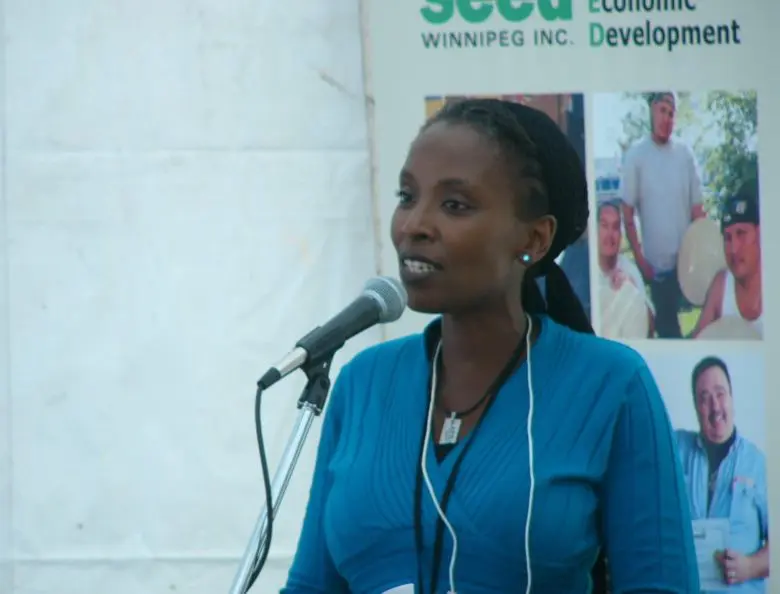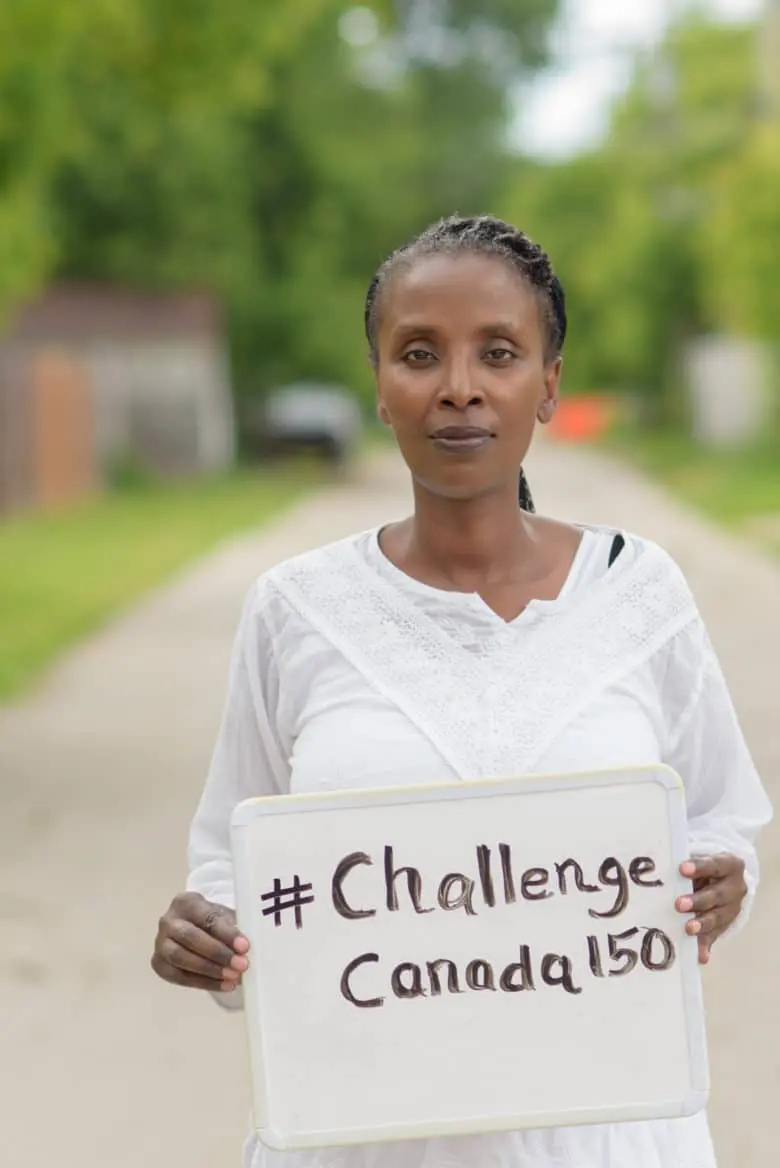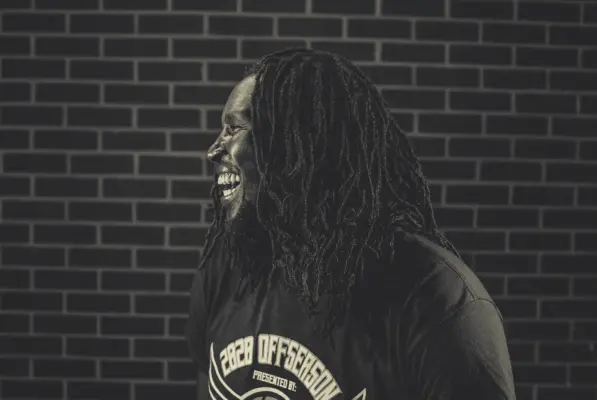
Louise Simbandumwe is speaking at an event organized by SEED, a non-profit organisation in Winnipeg’s inner city that promotes entrepreneurship and financial empowerment, where she is a co-Director. Photo courtesy of Louise Simbandumwe.
By Gisele Nyembwe
“I am energized by the strengthening of solidarity between Black Canadians, other racialized groups and Indigenous peoples.”
For years she has volunteered and worked quietly with others to address misconceptions about refugees in Canada. Louise Simbandumwe, a career community development practitioner and an advocate for human rights and social justice, says that the momentum gained by the Black Lives Matter movement in the past few months has expanded the space for dialogue, education and meaningful action on long standing issues of racial inequality.
“I am energized by the strengthening of solidarity between Black Canadians, other racialized groups and Indigenous peoples. This has motivated me to take action by facilitating conversations about the impact of racism at my workplace and within my extended family,” she says.

Louise takes part in a photo challenge advocating for the rights of Indigenous peoples during Canada’s 150th anniversary celebrations.
Louise has lived in four continents over the course of her life – Asia, Africa, Europe, and now in North America since being resettled many years ago to Canada as a refugee from Burundi. She knows firsthand how destructive social and economic exclusion can be and thinks her passion to want to make a difference in other people’s lives comes from her personal experience which has also shaped the person she is today. Louise has served on multiple boards tackling poverty and has received numerous awards for her community service, including the prestigious Manitoba Human Rights Award in 2012. Currently, she is a Co-Director of SEED, a non-profit organisation in Winnipeg’s inner city that promotes entrepreneurship and financial empowerment.
“I have met compassion and cruelty everywhere I have been in my life,” she says remembering the long journey to resettlement in Canada. She was just four when her parents, students at the time in India, couldn’t go back home because of the widespread massacres of Hutus in Burundi in 1972. Louise’s mother lost most of her immediate family during the massacres. Having nowhere to go back to, the family sought refuge in Kenya for a few years before being privately sponsored to Canada by a group of churches in 1979.
But Louise also has vivid memories of having stones thrown at her on her way to school in a small town in Canada and being prevented to join a gym in South Africa or being called a ‘black monkey’ in India, or being repeatedly stopped to prove her identity as a student at the entrances of colleges in Oxford England.
Recent events have, once again, brought the issue of anti-Black racism into sharp relief for Louise. Canada was not spared when it came to the widespread anti-Black racism protests decrying police brutality that took place in many parts of the world in response to the killing of George Floyd at the hands of police. His death caused renewed attention to systemic racism against Black and Indigenous peoples in Canada.
“We cannot let this moment end with the protests and rallies only. The next steps are to identify concrete actions for meaningful change to policy and practices, mobilize Canadians of all walks of life to take action and engage in sustained advocacy on these issues for as long as it takes,” she says.
“Know your rights. Learn how to advocate for yourself. Reach out and advocate for others who are also facing injustice.”
With the growing consensus about the existence of racial inequality in Canada, Louise is working in collaboration with others on a number of initiatives, including the development of a police accountability policy brief and advocacy kit that she hopes will provide the necessary tools to address systemic racism by engaging with decision makers in the police service and different levels of government.
Her message to other Canadians is simple: “Know your rights. Learn how to advocate for yourself. Reach out and advocate for others who are also facing injustice.”



